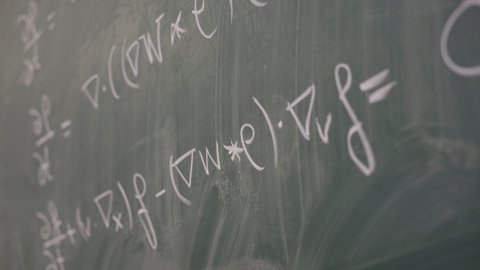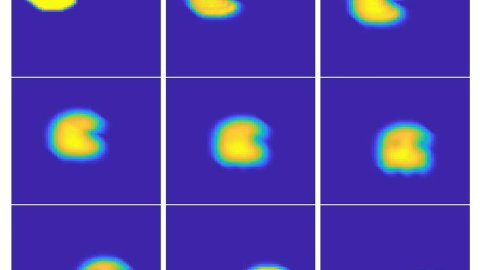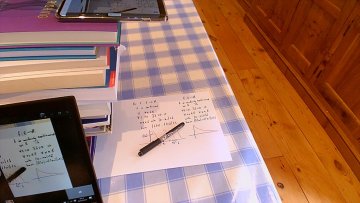16:00
Variational principles for fluid dynamics on rough paths
Abstract
We introduce constrained variational principles for fluid dynamics on rough paths. The advection of the fluid is constrained to be the sum of a vector field which represents coarse-scale motion and a rough (in time) vector field which parametrizes fine-scale motion. The rough vector field is regarded as fixed and the rough partial differential equation for the coarse-scale velocity is derived as a consequence of being a critical point of the action functional.
The action functional is perturbative in the sense that if the rough vector f ield is set to zero, then the corresponding variational principle agrees with the reduced (to the vector fields) Euler-Poincare variational principle introduced in Holm, Marsden and Ratiu (1998). More precisely, the Lagrangian in the action functional encodes the physics of the fluid and is a function of only the coarse-scale velocity.
By parametrizing the fine-scales of fluid motion with a rough vector field, we preserve the pathwise nature of deterministic fluid dynamics and establish a flexible framework for stochastic parametrization schemes. The main benefit afforded by our approach is that the system of rough partial differential equations we derive satisfy essential conservation laws, including Kelvin’s circulation theorem. This talk is based on recent joint work with Dan Crisan, Darryl Holm, and Torstein Nilssen.
11:30
Weak canonical bases in NSOP1 theories.
Abstract
Recently in a joint work with J. Dobrowolski and N. Ramsey it is shown that in any NSOP1 theory with existence,
Kim-independence satisfies all the basic axioms over sets (except base monotonicity) that hold in simple theories with forking-independence. This is an extension of the earlier work by I. Kaplan and N. Ramsey that such hold over models in any NSOP1 theory. All simple theories; unbounded PAC fields; vector spaces over ACF with bilinear maps; the model companion of the empty theory in any language are typical NSOP1 examples.
An important issue now is to know the existence of canonical bases. In stable and simple theories well-behaving notion of canonical bases for types over models exists, which is used in almost all the advanced studies. But there are a couple of crucial obstacles in finding canonical bases in NSOP1 theories. In this talk I will report a partial success/limit of the project. Namely, a type of a certain Morley sequence over a model has the weak canonical base. In my talk I will try to explain all the related notions.
11:30
Fields of finite dp-rank
Abstract
The classification of NIP fields is a major open problem in model theory. This talk will be an overview of an ongoing attempt to classify NIP fields of finite dp-rank. Let $K$ be an NIP field that is neither finite nor separably closed. Conjecturally, $K$ admits exactly one definable, valuation-type field topology (V-topology). By work of Anscombe, Halevi, Hasson, Jahnke, and others, this conjecture implies a full classification of NIP fields. We will sketch how this technique was used to classify fields of dp-rank 1, and what goes wrong in higher ranks. At present, there are two main results generalizing the rank 1 case. First, if $K$ is an NIP field of positive characteristic (and any rank), then $K$ admits at most one definable V-topology. Second, if $K$ is an unstable NIP field of finite dp-rank (and any characteristic), then $K$ admits at least one definable V-topology. These statements combine to yield the classification of positive characteristic fields of finite dp-rank. In characteristic 0, things go awry in a surprising way, and it becomes necessary to study a new class of "finite rank" field topologies, generalizing V-topologies. The talk will include background information on V-topologies, NIP fields, and dp-rank.




